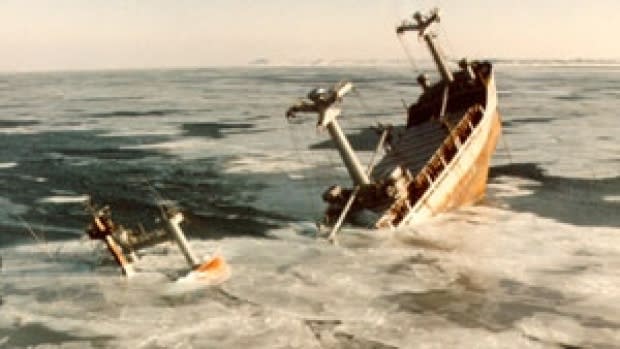Over 300,000 litres of oil may have leaked from Manolis L wreck, but it's impossible to know
From the moment the Manolis L ship ran aground on Jan. 17, 1985, to the moment the Canadian Coast Guard emptied out the last fuel tank still remaining on board last September, the sunken paper carrier may have leaked over 300,000 litres of fuel oil into the water near Change Islands, on Newfoundland's northeast coast.
When the ship first sank, initial reports estimated it was carrying about 520,000 litres of fuel oil and 72,500 litres of diesel.
Last week, the Coast Guard announced 208,769 litres of oil had been taken out of the ship this summer, after Ardent Global was hired to remove all oil that remained.
By those numbers, there's still a lot of oil unaccounted for.

When the ship first sank, some oil did leak from the vessel, said David Yard, superintendent of environmental response for the Atlantic region with the Canadian Coast Guard, and it couldn't be recovered because there was a lot of sea ice.
"I guess it is possible during the initial grounding and sinking some of the oil may have been trapped under the sea ice and that ice went back out to sea," he said. "But we can't speculate exactly on what would have happened to the remaining oil that was reported at the time to be on board."
In 2013, two cracks were found in the hull of the ship and were determined to be leaking oil into the water. The cracks were fixed, but small sheens in the water and oiled seabirds have been reported since then.
It's again impossible to know how much oil was released then, he said.
The only time the amount of oil on board was measured was during a technical assessment in 2016, done by the Coast Guard, which estimated there were between 115,000 and 150,000 litres on board.
That turned out to be a conservative estimate, given that over 200,000 litres were recovered last summer.
Yard says without knowing what happened after the ship ran aground, it's also impossible to say whether the original estimates for how much oil was on board were wrong.
Read more stories from CBC Newfoundland and Labrador

